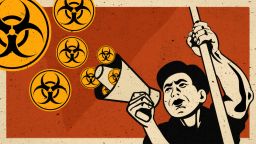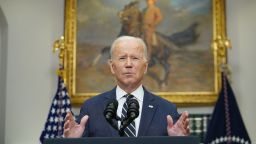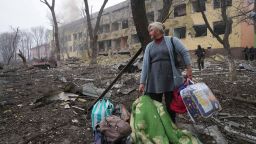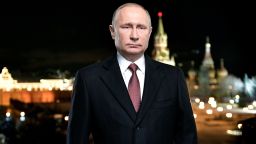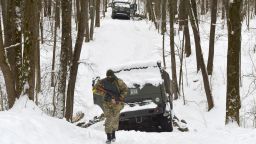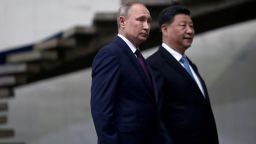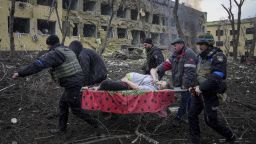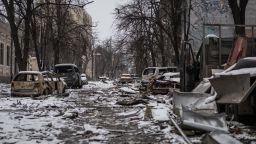US Ambassador to the United Nations Linda Thomas-Greenfield said Thursday that actions committed by Russia against the Ukrainian people are “war crimes.”
“They constitute war crimes; they are attacks on civilians that cannot be justified by any – in any way whatsoever,” Linda Thomas-Greenfiel said in an interview with BBC Newshour.
State Department spokesperson Ned Price stopped short of declaring Russia’s actions against Ukrainian civilians “war crimes” during a briefing Thursday, instead reiterating that the United States is “supportive of efforts to document and to investigate reports of potential war crimes in Ukraine.”
“The fact is that we’ve seen very credible reports of deliberate attacks on civilians, which would, under the Geneva Conventions, constitute a war crime,” he said at a State Department briefing Thursday, citing attacks on the hospital in Mariupol and strikes on schools, hospitals, buses, cars, and ambulances.
“We are appalled by the brutal tactics that the Russian Federation, the Kremlin, has employed in prosecuting this war of choice,” Price said.
Thomas-Greenfield said the question of whether Russia is guilty of war crimes is the one “we’re being asked every day, and we’re working with others in the international community to document the crimes that Russia is committing against the Ukrainian people.”
In the BBC interview, Thomas-Greenfield said she couldn’t predict how the war crimes would be prosecuted, but “what is important is that we collect the evidence and have the evidence ready and available to be used.”
The ambassador also indicated that the US is supportive of the International Criminal Court (ICC) probe of Russia’s actions in Ukraine, despite the US not being a member of the ICC and criticizing other ICC investigations.
“We’ve always been supportive of the Criminal Court taking actions when actions are required,” she said.
What other US officials are saying: Secretary of State Antony Blinken said on Sunday that the US is looking into “credible reports of deliberate attacks on civilians, which would constitute a war crime,” but had not declared that the US had made the assessment that Moscow was guilty of war crimes.
“What we’re doing right now is documenting all of this, putting it all together, looking at it, and making sure that as people and the appropriate organizations and institutions investigate whether war crimes have been or are being committed, that we can support whatever they’re doing,” Blinken said on CNN’s State of the Union. “So right now we’re looking at these reports. They’re very credible. And we’re documenting everything.”
Meanwhile, US Vice President Kamala Harris stopped short of calling Russia’s actions in Ukraine “war crimes” as civilians continue to be killed in the conflict
Speaking alongside Polish President Andrzej Duda in Warsaw Thursday, Harris said: “We are also very clear that any intentional attack on innocent civilians is a violation.”
She added: “The UN has set up a process by which there will be a review and investigations and we will of course participate as appropriate and necessary.”
Images from Ukraine clearly showed atrocities taking place, Harris said, even before an investigation determines what to call them.






